#State Fair 1945
Photo
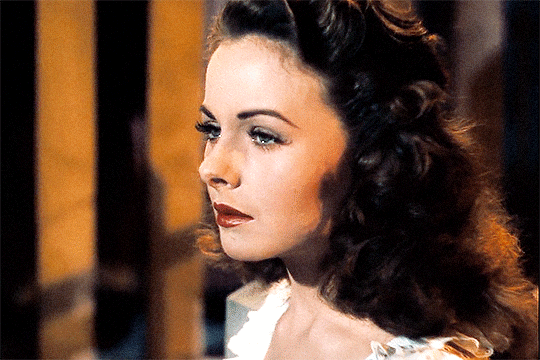

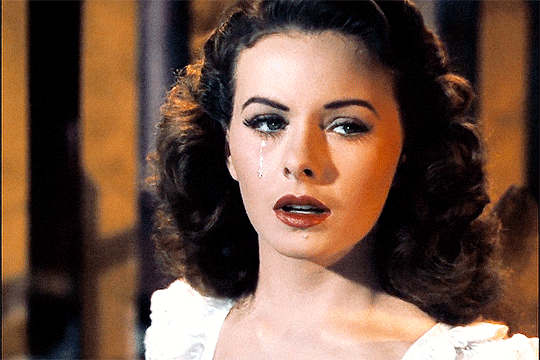
Jeanne Crain as Margy Frake
State Fair (1945) dir. Walter Lang
#Jeanne Crain#State Fair#State Fair 1945#dailyflicks#filmgifs#Old Hollywood#myedit#filmedit#classicfilmedit#walter lang#rodgers and hammerstein#classicfilmsource
54 notes
·
View notes
Text
#rodgers and hammerstein#broadway musicals#musical film#old hollywood#old movies#vintage movies#classic film#state fair 1945#oklahoma musical#carousel musical#the king and i#south pacific musical#flower drum song#the sound of music#musical theatre#theatre#theatre polls#old films#classic cinema
4 notes
·
View notes
Text
There's just something about putting on a gingham sundress that suddenly makes me feel like I'm in some vintage musical movie...
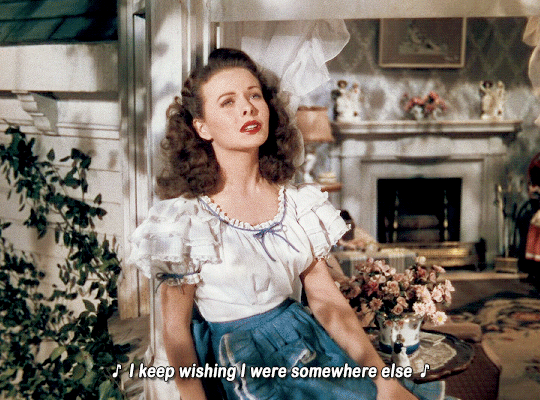
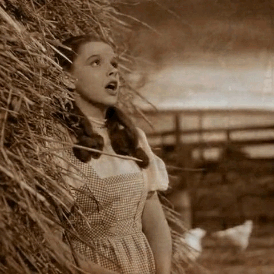


...and I'm perfectly ok with that.
#anyone else get like that or is it just me?#I'm just happy the weather is finally right for me to be able to wear it haha#cottagecore#cottage aesthetic#FTL personal#The Wizard of Oz#State Fair 1945#vintage
12 notes
·
View notes
Text
Dresses I Want To Run Away With My Lover And Live Out My Cottagecore Dreams In...
Belle (as portrayed by Emilie De Ravin) in Once Upon a Time (2011-18).
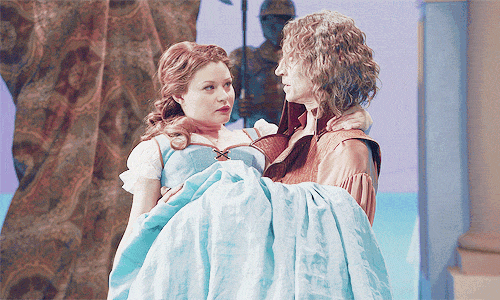
Amy March (as portrayed by Florence Pugh) in Little Women (2019).
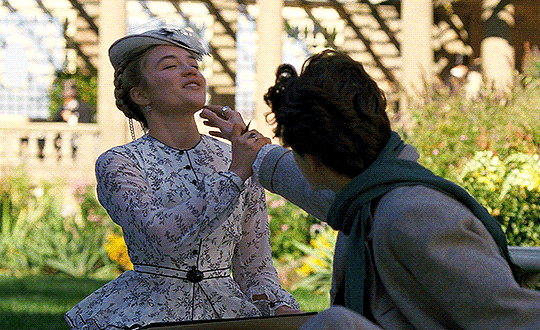
Margie (as portrayed by Jeanne Crain) in State Fair (1945).

Laurey (as portrayed by Shirley Jones) in Oklahoma! (1955).
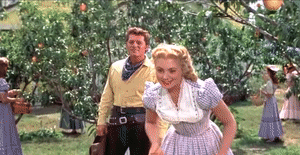
Alice Kingsley (as portrayed by Mia Wasikowska) in Alice in Wonderland (2010).

Empress Elisabeth (as portrayed by Romy Schneider) in Sissi (1955).

Giselle (as portrayed by Amy Adams) in Enchanted (2008).

Ella (as portrayed by Lily James) in Cinderella (2015).

Betsy McDonough (as portrayed by Dove Cameron) in Schmigadoon! (2021).

Marie Antoinette (as portrayed by Kirsten Dunst) in Marie Antoinette (2006).

#sapphic#sapphic post#wlw#wlw post#cottagecore#cottagecore aesthetic#dresses#film fashion#belle#ouat#amy march#little women#florence pugh#state fair 1945#oklahoma!#alice in wonderland#princess sissi#enchanted#giselle enchanted#cinderella#lily james#dove cameron#schmigadoon#marie antoinette#if i had this wardrobe i would be truly fulfilled#and if i escaped with my lover to a cottagecore dream life#that would be blissful
52 notes
·
View notes
Text
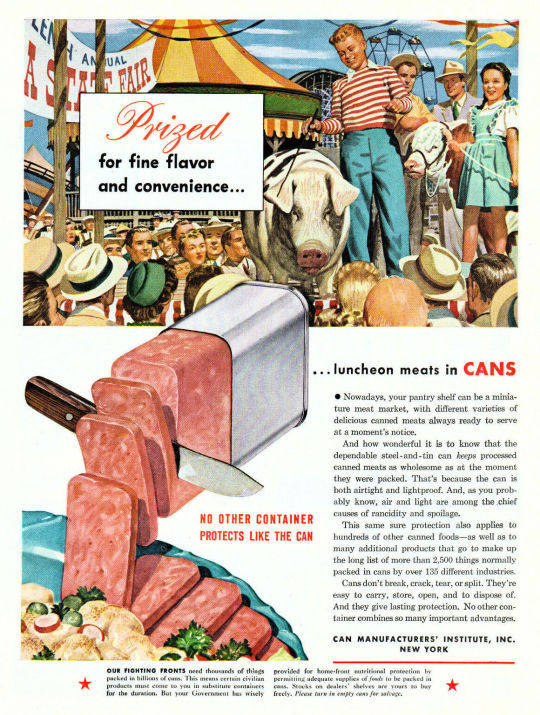
Can Manufacturers' Institute Inc, 1945
#canned meat#ad#1945#vintage#mid-century#advertisement#illustration#luncheon meats#cans#modern#1940s#midcentury#advertising#prized pig#state fair#retro#spam#mid century
108 notes
·
View notes
Text
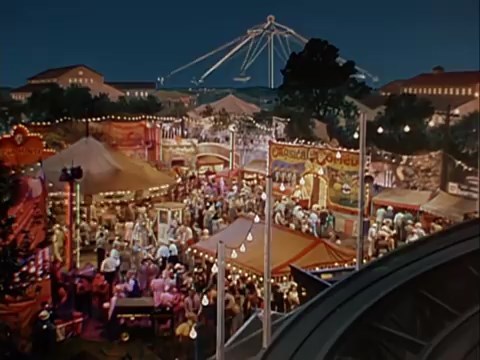

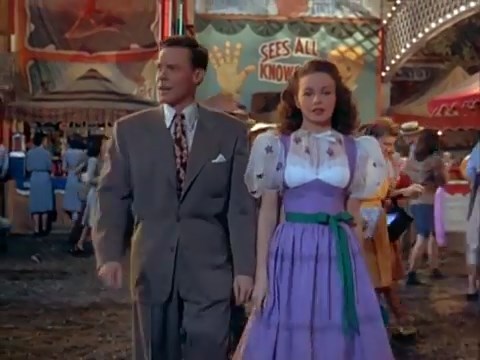

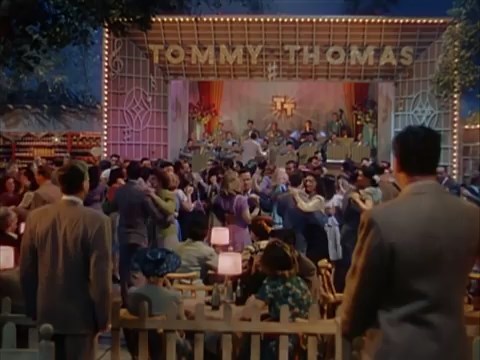
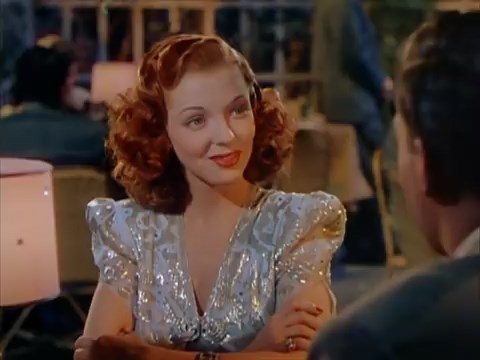
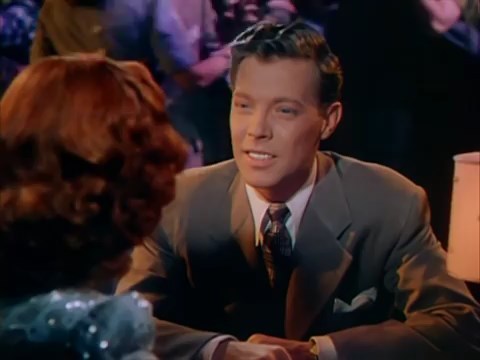





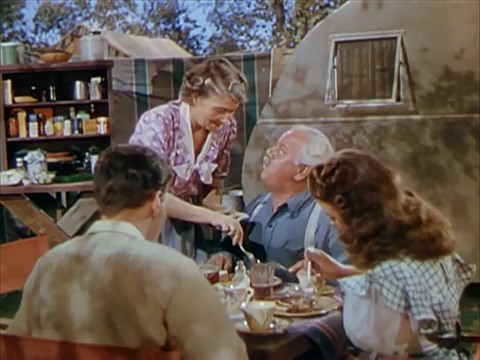


#state fair#walter lang#1945#jeanne crain#rabid#naked lunch#the enlightenment#hotel new hampshire#in the mood for love#hiob
1 note
·
View note
Text
IMAGE DESCRIPTION ADDED. REBLOG THIS VERSION AND THANK YOU @lab-labrava FOR WRITING IT!

ID: An infographic from the Instagram account @letstalkpalestine consisting of 10 slides.
Image 1: The title page of the infographic. The text says: "Let's talk Anti-Zionist Jewish History." A smaller subtitle underneath the title says: "Jewish solidarity with Palestine until today." End ID.

Image 2: The infographic continues to the next panel. The text says, "As long as Zionism has existed, so has Jewish resistance to it. While today the majority of Jewish people and communities worldwide still have a Zionist connection, more and more Jewish people, especially from the younger generation, are unlearning Zionism & speaking out. Swipe to learn more about just part of anti-Zionist Jewish history - since there's more than we can fit in 10 slides." A semi-transparent image is overlayed in the background, of someone holding up a sign that reads: Jews for Palestine! #Free Sheik Jarrah. End ID.

Image 3: Icon of a location tag next to the words Eastern Europe. In large, blue text is the word "The Bund" and the subtitle describing what it is, "A Jewish Socialist movement, established in 1987."
The following paragraph says, "Opposing Zionism from the start, its 50-year tenure saw hundred of thousands of members across Eastern Europe advocate for workers' rights and cultivate a Yiddish culture."
Location tag and the title, "North America." The paragraph says, "After mass immigration to the US in the early 20th century, [American Jewish Labor groups] (highlighted in chalky blue and bold white text) criticized Zionism for its colonial, nationalist, and bourgeois nature." Next to this text, is a circle with women protestors holding up signs. End ID.

Image 4: The title, "Middle East and North Africa." The paragraph states, "In 1945 a group of Iraqi Jews founded the Anti-Zionist League. They recognized Zionism as a form of colonialism linked to Western Interests.
They hosted events and published pamphlets throughout the Middle East about the difference between Zionism & Judaism.
They warned that Zionism is dangerous to Arab Jews, forcing them to split their Arab and Jewish identities, and urged the UN to create a unified Palestinian state.

Image 5: The panel is titled, "Anti-Zionist Jewish figures." A faded image of Hannah Arendt's visage is in the background. Overlayed on top, the following paragraphs discuss her. "Before 1948, several prominent Jewish leaders and scholars came out in opposition to political Zionism. Writers like Hannah Arendt turned against the Zionist movement and opposed a Jewish state.
They correctly predicted a dark future if Zionism continued on the same path in Palestine. End ID.
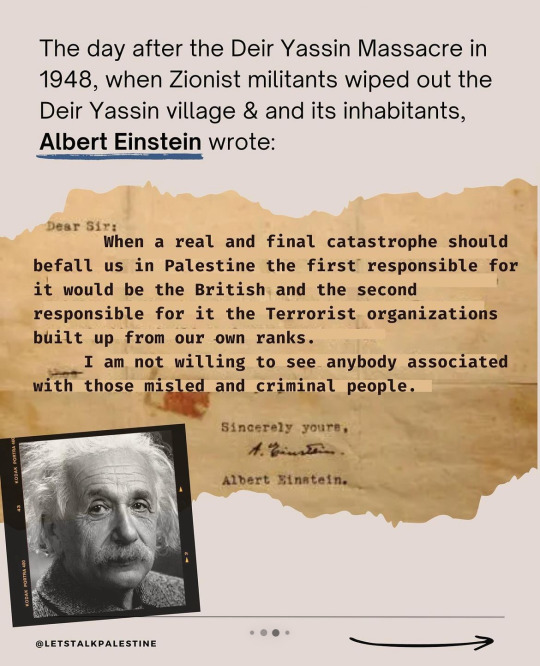
Image 6: The day after the Deir Yassin Massacre in 1948, when Zionist militants wiped out the Deir Yassin village & its inhabitants, Albert Einstein wrote:
"When a real and final catastrophe should befall us in Palestine the first responsible for it would be the British and the second responsible for it the Terrorist organizations built up from our own ranks. I am not willing to see anybody associated with those misled and criminal people." The former paragraphs are imposed against a tan, parchment fragment, in typewriter font, and the letter ends with Sincerely yourn, Albert Einstein, both his signature and typed name. End ID.
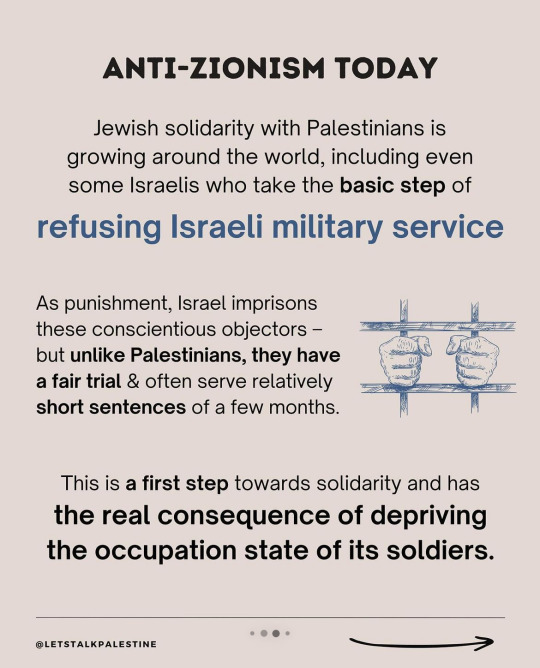
Image 7: Titled "Anti Zionism Today." Blue sketchy image of someone's hand gripping jail bars breaks up the following paragraphs which say: Jewish solidarity with Palestinians is growing around the world, including even some Israelis who take the basic step of refusing Israeli military service.
As punishment, Israel imprisons these conscientious objectors — but unlike Palestininas, they have a fair trial & often severe relatively short sentences of a few months .
This is a first step towards solidarity and has the real consequence of depriving the occupation state of its soldiers. End ID.

Image 8: Titled "Israel's Crackdown on Jewish Anti-Zionism" Behind this text are a picture of handcuffs. In the corner is a picture of Jonathan Pollak. The following text says: Jonathan Pollak is a Jewish Israeli and long-time anti-Zionist activist. Israel has detained him several times, most recetly in January as he protested with Palestinians in Beita, (a Palestinian village) for allegedly throwing stones.
Jonathan has been violently attacked for his activism. In 2018, Jonathan was slashed across the face by settlers who ambushed him outside his workplace. Earlier, in 2005, Israeli soldiers shot a tear gas canister. directly at him, causing internal bleeding in his brain." End ID.

Image 9: Semi-transparent image of an umbrella behind the title text is "Jewish Anti-Zionism isn’t one ideology. It’s an umbrella movement that encapsulates multiple communities and beliefs towards decolonizing Palestine. Some motivations or Jewish anti-Zionism include:
1. Pursuing millenia of Jewish tradition as a diasporic community
2, Detachibng religious and cultural tradition from political nationalism.
3. Socialist visions of a Jewish Society.
4. Believing in the right to self-determination for Palestinians
Standing up to Zionism is:
1. Standing up to apartheid and colonization.
2. Standing up for a liberated, equal, and just Palestine from the river to the sea.

Image 10: An ending quote, and call to action, by the Anti-Zionist League. It says: "Jewish Men! Jewish Women! Zionism wants to throw us into a dangerous & hopeless adventure. Zionism contributes to making Palestine uninhabitable. Zionism wants to isolate us from the Egyptian people. Zionism is the enemy of the Jewish people. Down with Zionism! Long live the brotherhood of Jews and Arabs!" --The Anti-Zionist League. End ID.
#israel#jewish#jews#jumblr#palestine#resources#history#resistance#genocide#instagram#ethnic cleansing#activism#zionism#anti zionism#socialism#colonialism#colonization#judaism#free palestine
1K notes
·
View notes
Note
As a black person I actually find the logic of many Zionists to be audacious.
My people were sold and kidnapped. We were enslaved for hundreds of years. We had the most despicable things happen to us. I’m sure you may relate, we were put into breeding camps, they used our parts to make clothes and furniture, allegedly they ate us, they tortured us, etc.
There is more than enough proof I am indigenous to Africa hell I found and reconnected with the family one of my ancestors was taken from. I am very lucky.
At no point have I ever thought about going to West Africa and taking the land back, stealing property, imprisoning, and murdering people who’ve lived there for centuries and still live there today. Even though there’s a possibility that they’ve participated in the selling of at least one of my ancestors.
Just because I can trace my heritage there doesn’t suddenly mean I have a claim on the land. I have heard so many Zionist say they belong there more than Palestinians, that there claim on the land is stronger. Maybe it’s not all of them but it is enough to be concerning.
Also bring up Liberia if you want. We didn’t ask for that.
This is a fair critique and it brings up one of the most important aspects of Zionism, and of all Jewish life in the modern era and from now on: that Zionism was always morally RIGHT, but it did not have to be morally NECESSARY.
For decades there was a raging, controversial, legitimately two-sided intracommunity debate over Zionism, like nothing you see among Jews today, memorably portrayed in Chaim Potok's novel "The Chosen" (and subsequent film version). The Reform Jewish Movement, our largest denomination, was governed by an explicitly anti-Zionist platform for over 50 years..... until they changed their minds in 1937. The Jewish people always trace their heritage to Eretz Yisrael, always could claim a rightful place there - but things should never have been allowed to get bad enough, fast enough, that in the truest sense their only choice was to create a state of Israel or die.
As early as 1920, Hitler said his goal was total extermination of the Jews. Nobody cared. America sealed its gates to Jewish immigrants in 1924. Germany began visibly prepping for genocide around 1935, again nobody cared. At Evian 1938 - "the great betrayal" - pretty much every powerful state in the world acknowledged that the Jews were about to be wiped out, and knowing that, refused to allow refugees to enter (except for the Dominican Republic, the mensches). England bowed to Arab terrorism and sealed off immigration to Mandate Palestine - which was a violation of international law under the League of Nations but, again, nobody cared. Nobody, not one single country, fought to protect the Jews or to help them escape. The Allies couldn't be bothered to bomb the tracks into Auschwitz, but they would heroically sink refugee ships. After the war, 250,000 Jews lingered miserably in displaced persons camps for YEARS, with not one single country being willing to admit them, and in nearly all cases there being nothing to return to anyway. There were still Jews kept in Dachau, guarded by Germans, until 1951.
From a 1945 report to Truman: "Many Jewish displaced persons … are living under guard behind barbed-wire fences … including some of the most notorious concentration camps … had no clothing other than their concentration camp garb…. Most of them have been separated three, four or five years and they cannot understand why the liberators should not have undertaken immediately the organized effort to re-unite family groups…. Many of the buildings … are clearly unfit for winter…. [Author contrasted these conditions with the relative normal life led by the nearby German populations and wondered at the contrast] ...We appear to be treating the Jews as the Nazis treated them except that we do not exterminate them. They are in concentration camps in large numbers under our military guard instead of S.S. troops. One is led to wonder whether the German people, seeing this, are not supposing that we are following or at least condoning Nazi policy...."
Those who attempted to return to their former communities were routinely murdered (seen at the end of "Maus"). There was a massacre of Holocaust survivors in Kiev, Ukraine in September 1945, another in Kielce, Poland in July 1946.
The Jews saw Palestine as their only hope, because it was. And when they saw their enemies there were led by actual red-handed Nazi war criminals, and heard that the stakes were once again their total genocide? Well, that's when you fight.... damn hard... to build the state and the military that will, FOR ONCE, protect you.
You talk about "At no point in my life have I considered claiming a part of Africa and fighting the people who I find there". Well - what if it was extremely obviously that or death?
A popular saying among Jews: "Israel was not created because there was a Holocaust. The Holocaust was created because there was no Israel." It's true - but it should not have been necessary to have an Israel to prevent the Holocaust. The rest of the world should have done that, and they didn't so much fail in preventing it as much as they succeeded in enabling it. You are correct to say that African-Americans did not ask for Liberia. The concept was made up by white people to try to get blacks out of America (though it gained popularity with black people after "milestones" of new cruelty such as the passage of the Fugitive Slave Act, and I believe Marcus Garvey is well-liked to this day). Well, Jews did not ask to have no government in the world grant us equality or defend us from genocide. We did not ask to have no choice. And we do not ask for our response to the latest attempted genocide to be condemned by the same nations that enabled the last several.
Today about 90% of Jews are Zionists. Not just out of the everlasting moral principle, but because of the life-or-death reality that when we needed ANY OTHER OPTION TO WORK, NOTHING DID. And since then, there has been even clearer demonstration of the tenuousness of Jewish survival and the depths of inhuman hatred we face from our enemies, as the 3,000-year-old Mizrahi Jewish civilization was successfully uprooted and purged from dozens of countries (which had already been oppressing and massacring them long before Zionism) as collective racial revenge against Israel. The mere fact that that was logistically possible - that it could be done, quickly and repeatedly - speaks worlds about the normalized culture of eliminationism surrounding us. What do you really think are the chances that African-Americans could be altogether physically purged from the USA or some of its states? Yemen, Syria, Afghanistan, and Eritrea finished their Jews within the last 5 years.
As "critics of Israel" have made it extremely clear that all Jews worldwide remain legitimate targets, that all "colonizers" (unquestionably including Americans like me) "deserve it" ("it" to include infanticide, rape, kidnapping, and mass murder), and as America visibly decays into algorithmic racist authoritarianism and climatic desperation.... you should not expect that 90% to change.
177 notes
·
View notes
Text
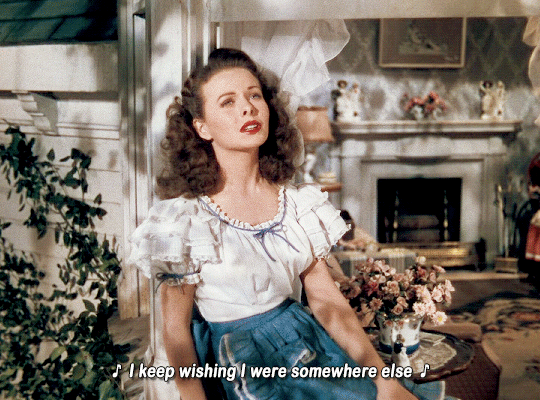

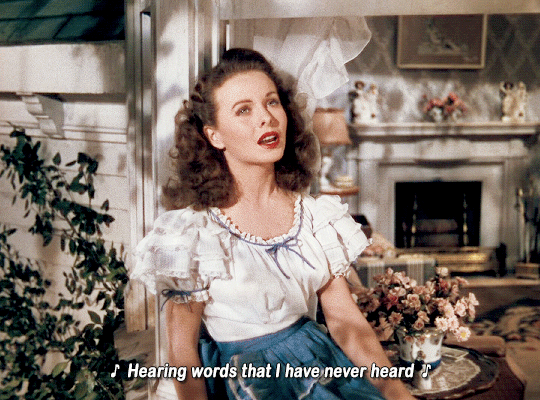
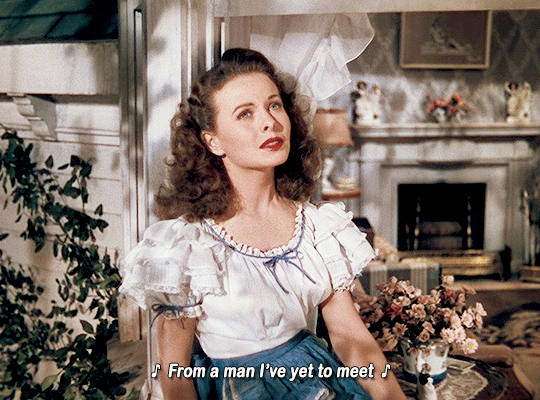
I'm starry-eyed and vaguely discontented
Like a nightingale without a song to sing
Oh, why should I have spring fever
When it isn't even spring?
STATE FAIR
1945, dir. Walter Lang
#filmedit#filmgifs#moviegifs#userfilm#fyeahmovies#cinemaspam#oldhollywoodedit#classicfilmedit#classicfilmcentral#classicfilmsource#cinemaspast#classicfilmblr#state fair#film#old hollywood#mine#mine:oh
722 notes
·
View notes
Text
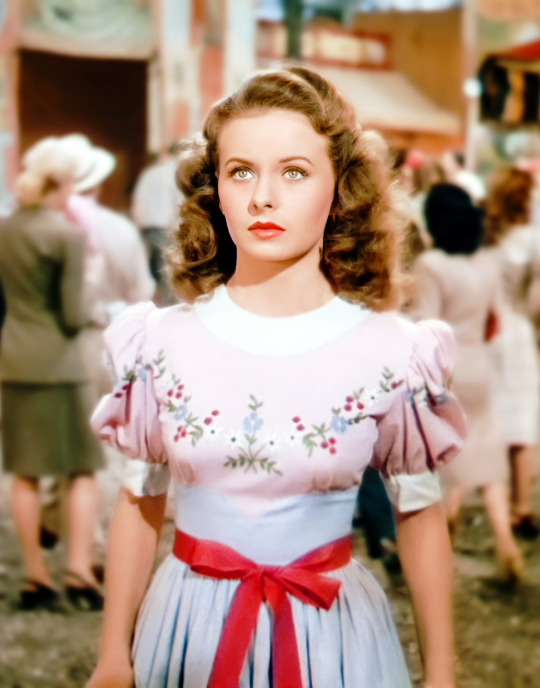
Jeanne Crain in 'State Fair' (1945).
104 notes
·
View notes
Photo
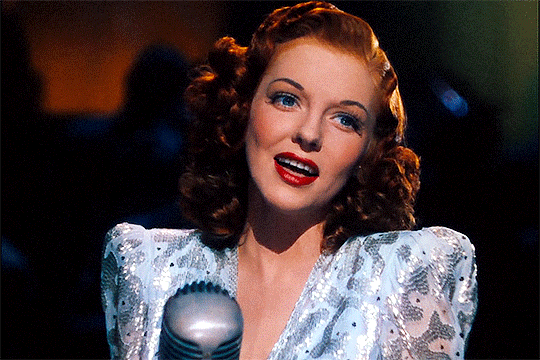

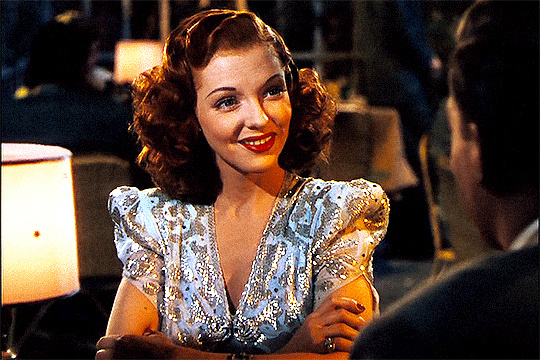
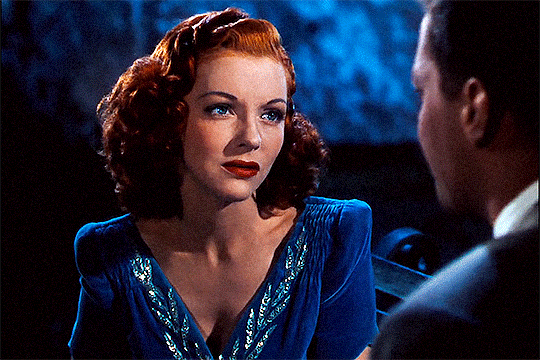

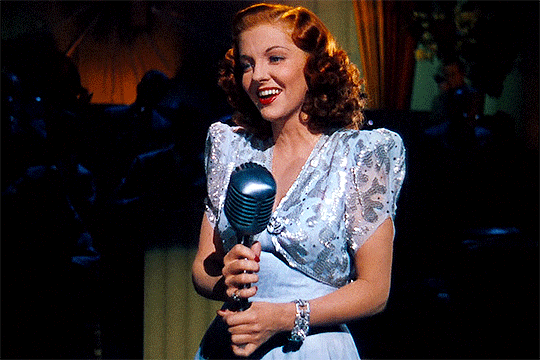
Vivian Blaine as Emily Edwards
State Fair (1945) dir. Walter Lang
#Vivian Blaine#State Fair#rodgers and hammerstein#filmedit#classicfilmedit#old hollywood#1945#myedit#filmgifs#dailyflicks#this woman is so stunning#i was yelling at my screen while making these because she!!! is so!! pretty!!!
139 notes
·
View notes
Text
The Supreme Court is trying to drag America backwards to “Separate but Equal”

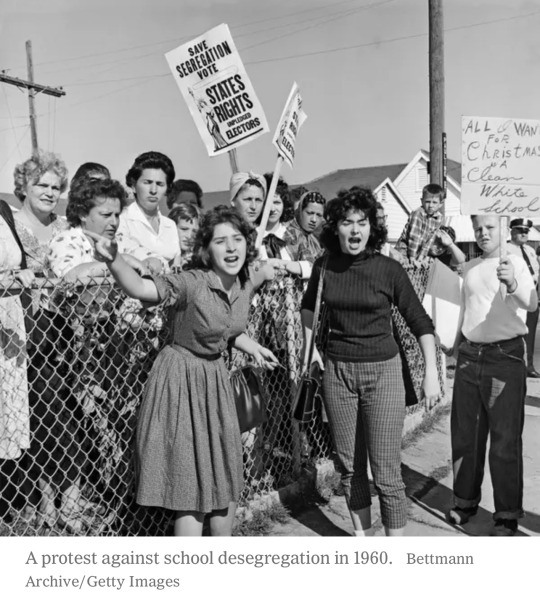
President Andrew Johnson vetoed the nation’s inaugural Civil Rights legislation because, in his view, it discriminated against white people and privileged Black people. The Civil Rights Act of 1866 (which Congress enacted over the veto) bestowed citizenship upon all persons — except for certain American Indians — born in the United States and endowed all persons with the same rights as white people in terms of issuing contracts, owning property, suing or being sued or serving as witnesses. This law was proposed because the Supreme Court had ruled in Dred Scott v. Sanford that African Americans, free or enslaved, were ineligible as a matter of race for federal citizenship, and because many states had barred African Americans from enjoying even the most rudimentary civil rights.
Johnson vetoed the act in part because the citizenship provision would immediately make citizens of native-born Black people while European-born immigrants had to wait several years to qualify for citizenship via naturalization (which was then open only to white people). According to Johnson, this amounted to “a discrimination against large numbers of intelligent, worthy and patriotic foreigners, and in favor of the Negro, to whom, after long years of bondage, the avenues to freedom and intelligence have just now been suddenly opened.” Johnson similarly opposed the provision in the act affording federal protection to civil rights, charging that it made possible “discriminating protection to colored persons.”
A key defect of the Civil Rights Act, according to Johnson, was that it established “for the security of the colored race safeguards which go infinitely beyond any that the general government has ever provided for the white race. In fact, the distinction of race and color is by the bill made to operate in favor of the colored and against the white race.” Johnson opposed as well the 14th Amendment, which decreed that states offer to all persons equal protection of the laws, a provision which he also saw as a wrongful venture in racial favoritism aimed at assisting the undeserving Negro.
In 1875, Congress enacted legislation that prohibited racial discrimination in the provision of public accommodations. Eight years later, in a judgment invalidating that provision, the Supreme Court disapprovingly lectured the Black plaintiffs, declaring that “when a man has emerged from slavery, and by the aid of beneficent legislation has shaken off the inseparable concomitants of that state, there must be some stage in the progress of his elevation when he takes the rank of a mere citizen and ceases to be the special favorite of the laws.”
In 1941, President Franklin D. Roosevelt promulgated Executive Order 8802, which prohibited racial discrimination in the employment of workers in defense industries and established the Fair Employment Practices Commission to carry out the order. Assailing the order, Representative Jamie Whitten, a Mississippi segregationist, complained that it would not so much prevent unfairness as “discriminate in favor of the Negro” — this at a time when anti-Black discrimination across the social landscape was blatant, rife and to a large extent, fully lawful.
Segregationist Southerners were not the only ones who railed against antidiscrimination laws on the grounds that they constituted illegitimate preferences for African Americans. In 1945, the New York City administrator Robert Moses inveighed against pioneering municipal antidiscrimination legislation in employment and college admissions. Displaying more anger at the distant prospect of racial quotas than the immediate reality of racial exclusions, Moses maintained that antidiscrimination measures would “mean the end of honest competition, and the death knell of selection and advancement on the basis of talent.”
Liberals, too, have attacked measures they deemed to constitute illicit racial preferencing on behalf of Black people. When the Congress of Racial Equality, or CORE, proposed “compensatory” hiring in the early 1960s — selection schemes that would give an edge to Black people on account of past victimization and the lingering disabilities caused by historical mistreatment — many liberals resisted. Asked about CORE’s demands, President John F. Kennedy remarked that he did not think that society “can undo the past” and that it was a mistake “to begin to assign quotas on the basis of religion, or race, or color, or nationality.”
Kennedy’s comment that it would be a mistake “to begin” to assign quotas reflects a recurring misimpression that racial politics “begins” when those who have been marginalized make demands for equitable treatment.
When Kennedy spoke, unwritten but effective quotas had long existed that enabled white men to monopolize huge portions of the most influential and coveted positions in society. Yet it was only when facing protests against monopolization that he was moved to deplore status-based quotas.
This same dynamic has been recurrent in subsequent decades: Every major policy seeking to advance the position of Black people has been opposed on the grounds that it was race conscious, racially discriminatory, racially preferential and thus socially toxic. That racial affirmative action in university admissions and elsewhere has survived for so long is remarkable, given the powerful forces arrayed against it.
(continue reading)
#politics#scotus#education#affirmative action#separate but equal#republicans#racism deniers#white supremacy#two americas#double standards#racism
139 notes
·
View notes
Text
THE TREK ACROSS AMERICA WITH TWO STRAIGHT EGYPTIANS
Arabian Horse World
"On April 16, 2021, Patrick Sullivan of Modern Day Horsemanship started his 2,500 mile journey from Sacramento, California to Georgetown, Kentucky, where he arrived on October 16, 2021.
He took two Straight Egyptian Arabian horses, the black mare Gamilah MJA, sired by Bellagio RCA, out of the Thee Desperado+ daughter, Thee Bahieh, and her maternal brother, grey gelding Haleem MJA, sired by Thee Infidel, out of Thee Bahieh.
He did this incredible trek bridleless and mostly bareback, and visited 20 non-profits, local rescues, and charities while providing liberty demonstrations along the way.

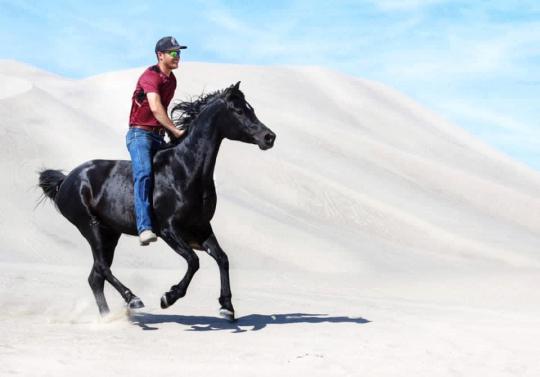
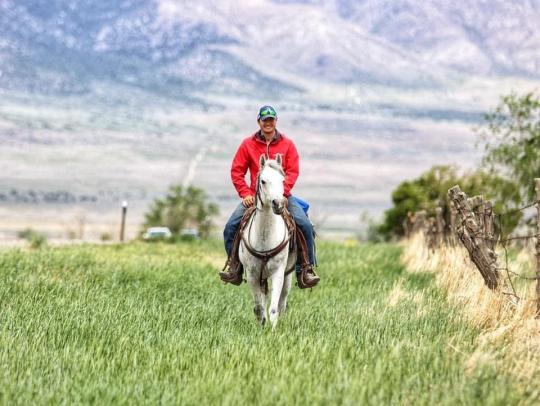
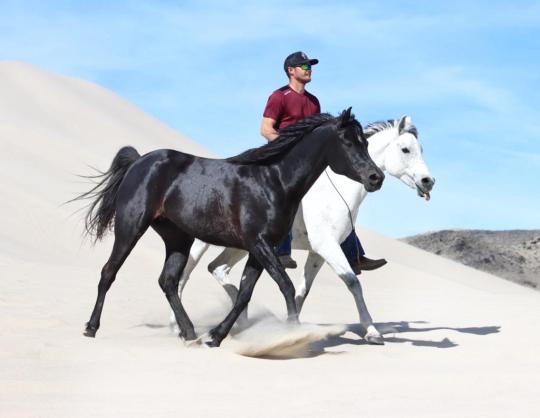


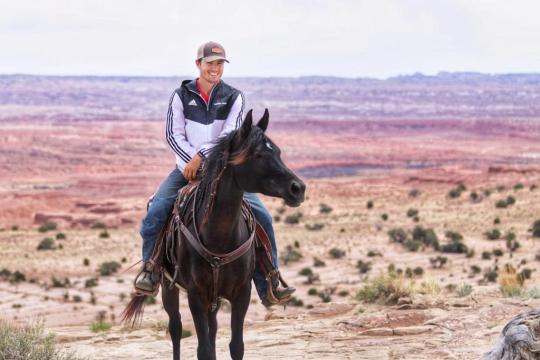
Shawn Crews sat down with Patrick to revisit this incredible journey.
Shawn: I’ll never forget the day when you told me your plan to do this, and honestly, Patrick, I know your whole family and I come from a very optimistic family, however, I considered your level of optimism to be triple of what I know. I’ve known you since before you were involved in horses. Your goal is so large and you have such a positive attitude, but still when you told me about this we were shocked. We are all very horse show goal-oriented, so I was curious as to why you chose to do something so different with your Straight Egyptian.
What was the seed that led you to this tremendous adventure? How did you come up with this plan and was was the vision you had in mind?
Patrick: You were not the only one who thought this was a bit crazy. This idea started six to seven years ago, and started when my mother told me that my great grandfather saw his first Arabian horse in the Chicago state fair in 1945 and fell in love. He ended up purchasing a few horses, however after him, they got out of Arabians until my mother got involved through Arabians Limited and you (Shawn Crews). The idea of this ride was to honor my great grandfather and ride from Texas to the location of the Chicago State Fair where my grandfather’s love began. Slowly the ride transformed into something much bigger, hoping to inspire people to think deeper about the Arabian horse and the connection we can have with them through liberty and bridleless riding.
I have read many historical books like The Classic Arabian Horse by Judith Forbis, and the Authentic Arabian Bloodstock books about how the Arabian horses lived in the tents with the bedouins and were treated as family. I wanted to test that legend out and bring our Arabian horses into our family. I want to really feel and say that these horses are exactly what history says. For me, the way to do this was to ride across the country with them and see if it is possible.
It was a long and amazing journey, one that I will cherish forever.
Shawn: No one in our time here has proved these horses’ athletic abilities until you and Gamilah. Did Gamilah inspire your plan to do this, or did the plan come first?
Patrick: It was a little bit of both. The reason I chose Gamilah to be the main instrument in the journey is because she was the first horse I had started under saddle. She was strong, opinionated and sassy. She is incredibly intelligent and we butted heads for years, however, the more I learned to listen to her and train her in the way she wanted to be trained, the more she wanted to give me. Once we came to that agreement, I knew there was no other soul on this planet that I would want to make this trip with than Gamilah. At the end of the day, I have always told people that I trusted her with my life. I knew she would keep me safe and keep herself safe; We went through so much together. I told her, if we are going to do this, we are going to do it together.
When I think about mares, especially the Arabian mares, I know they can be very difficult at times to earn their trust and respect, a lot more difficult than the geldings. However, when you get to reach the heart of a mare, they will do anything for you.
Shawn: How old was Gamilah when you started this ride?
Patrick: She was 10 years old. We left two days after her birthday.
Shawn: Tell me about the logistics of this trip. Nettie followed you with the trailer, so you always had a safety fall back should you need anything, and you had host farms set up along the way. However, there must have been long stretches along the way without lodging. That is a lot of miles, many of which are not civilized, explain the logistics.
Patrick: Nettie is one of my best friends in the whole world. Initially, she was going to ride with me. However, three months before, she called and said that she was pregnant and couldn’t ride alongside. So, they decided that she would drive the truck and trailer with her camera and document the journey.
We followed HWY 50. For the most part, the highways had a large shoulder which allowed them to stay 30-40 feet off the road, while the smaller roads we were right alongside. I kept panels on the side of the trailer and each night, we would set up a 20′ x 20′ pen behind the trailer where the horses stayed while we slept in the living quarters of the horse trailer.
So many wonderful people stopped along the way were offering assistance, and inviting us into their homes and barns to layover. It was amazing to experience the generosity of the people, stopping to be sure we were okay.
The best part of the ride, in regards to logistics, were the western states of Utah, Nevada, California, and Colorado. It was more open and had so much public land. The terrain was difficult and at one point, we rode up to 11,000 feet in Colorado. As we ventured East, the logistics became a bit more of a challenge.
We went through mountains, deserts, valleys, small towns, fair grounds, rivers. We went through it all!
Shawn: As the ride progressed and word spread, you seemed to gain momentum with the local press.
Patrick: Yes, honestly the ride was amazing, but the most important part of this ride for us was being able to give back to the Arabian horse. We ended up stopping at 19 different non-profits in 11 different states. We would educate them about liberty riding and use our horses to showcase how capable the Arabian horse is, and how powerful the horse-human connection is.
We stopped by non-profits for kids, for the mentally ill and even a prison to educate the prisoners on horsemanship. Our horses were able to teach all that we visited and that was so rewarding. These organizations helped us get through the long days, knowing that our next stop was going to help and educate the next group of people about our Arabian horses and their amazing personalities.
Shawn: You have mentioned the liberty aspect of this ride a few times, can you explain a bit about what liberty means.
Patrick: Liberty is being able to do almost anything with a horse without a halter. Express to your horse what you want it to do, without a bridle or halter. The relationship between horse and human, along with trained cues is the key to create a bond. I often relate to the movie Avatar, if you have the ability to connect with another being, in this case being a horse, they can take us to see things that we could never do on our own. Gamilah and Hal gave me this experience along our journey.
Shawn: Did you feel a bit like those pioneers that crossed the country so many years ago in their covered wagons?
Patrick: One of the main parts about the trip (possibly 1,000 miles), we followed the Pony Express Trail. The pony express was used as a form of communication across the country long before technology. I learned how incredibly strong people were back then. Their lives revolved around horseback, compasses and reading the stars. From time to time, I liked to think that we were the new generation of explorers, experiencing what our ancestors had. Hoping to push the next steps in horsemanship and prove that the Arabian horse is one of the foundation breeds of our country.
Shawn: I have great respect for all Arabian horses, however, my life has revolved around the Straight Egyptian Arabian horse. Are there any special traits to the Straight Egyptian that you feel helped in this experience? Knowing that you have experience with other bloodlines and other breeds, what made the Straight Egyptian special?
Patrick: I’ve never met another horse that could have made that trip, and there is no other horse I would attempt to do it with. What I feel separates the Straight Egyptian is their heart. If you really look at the heart, they are old souls. They seem to be here to teach us, and I believe this comes from their ancestors. I truly believe the Straight Egyptian is the old soul of all horses. When I look in Gamilah’s eyes, I see that soul and it has taught me so much!
There are good things and bad things said about the Straight Egyptian Arabian horse. For anyone who has ever truly gotten to know one, I think can relate to what I am saying.
Shawn: In this project, you have mentioned Nettie being an amazing support, along with your family and a group of sponsors that helped make this possible.
Patrick: I think those who supported us are what made this trip so special. There was not a bigger supporter than my mother, Malinda Passmore. she is all about the Straight Egyptian and wants to make it accessible to everyone, especially the geldings. Our other sponsors were Marah Jamil Arabians, Keri and Carolee Wright, Ann and Fred Gabrielli and The Pyramid Society,
There was one of the biggest professionals in the horsemanship industry that I am friends with. He is not an Arabian horse person, but he told me, “I don’t have a problem with you riding across the country brideless. I don’t have a problem with the time frame or liberty. My biggest concern is that you are doing it on an Arabian!”. This comment inspired me to prove the Arabian stereotype wrong. I will keep his name anonymous out of respect for our friendship, however, I was quite proud to show the world that the Arabian horse can do anything."
35 notes
·
View notes
Text

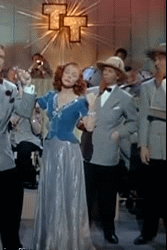
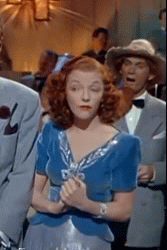


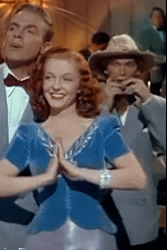



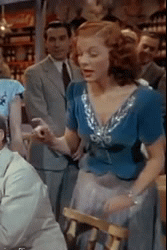


Emily Edwards (Vivian Blaine) Blue & silver gown.. State Fair (1945).. Costume by René Hubert.
12 notes
·
View notes
Note
As a Social Democrat, what would you say has been its historical tendencies towards colonialism and upliftment of developing nations? Why is that Communism, despite some acknowledged failures (Afghanistan, Tibet, Xinjiang), is seen as more anti-colonialist by comparison?
That's a really interesting question.
Honestly, when it comes to social democracy's record on de-colonization, it's something of a mixed bag. One of Eduard Bernstein's major flaws, his feet of clay, is that he was pro-imperialism - although to be fair, the SPD as a whole was pretty consistently anti-colonialist between the 1890s and 1914.
On the other hand, the British Labour Party did very little about empire and was arguably pro-empire up until 1945. Clement Attlee, however, had a personal interest in decolonization and was a committed supporter of Indian self-governance since the 1930s, and negotiated the independence of India, Pakistan, Myanmar, and Sri Lanka. On the other hand, Attlee wasn't entirely consistent on this point - he rather mis-handled the British Mandate in Palestine, African colonies were bypassed for de-colonization, and the Attlee government began the counter-insurgency in Malaysia. So something of a mixed bag, as I said.
Attlee's policies did have a long-term effect on the Labour Party - it opposed British involvement in the Suez Crisis on a united basis despite its divisions on other issues, for example. Likewise, the Harold Wilson government was characterized by broad sympathies to the cause of decolonization but a relatively weak commitment to accepting much risk. For example, Wilson refused to send British ground troops to Vietnam but did provide intelligence and jungle warfare training and wouldn't publicly denounce the war.
He did remove British troops from Singapore, Malaysia, and the Persian Gulf and supported de-colonization in Africa, but he rather screwed up in Rhodesia where after insisting on black suffrage in return for Rhodesian independence, he refused to send the British military to "fight our kith and kin" when Ian Smith unilaterally declared independence for his apartheid state, delaying liberation for many years.
By contrast, the Soviet Union and China could more straightforwardly support anti-colonial insurgencies (that often blended nationalist and communist ideologies) in no small part because the Bolsheviks had been anti-WWI and anti-imperialism pretty consistently thanks to Lenin's influence.
And if you were an anti-colonial insurgency, would you prefer the folks who might give you a thumbs up or the folks who would give you weapons?
102 notes
·
View notes
Text
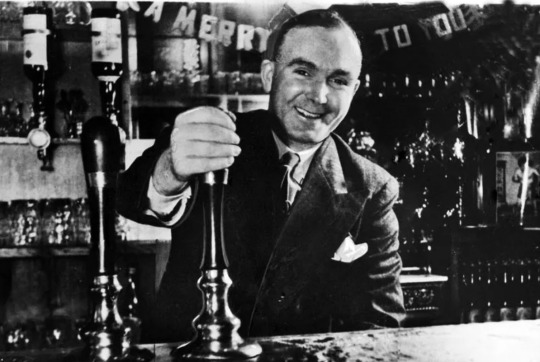
Over the course of 25 years, Albert Pierrepoint killed between 435 and 600 people, with his last being in 1956. He was Britain's most prolific hangman, and in late 1945 he was brought to Germany with a specific task: Executing Nazis.
A private man, both Albert's father and uncle had been hangmen before him, and over the course of his career he killed a variety of people, conventional criminals, serial killers (plus an innocent man a serial killer had framed for his crimes), and spies.
He didn't particularly like advertising his side-gig as someone who killed people on behalf of the state (for obvious reasons), but due to his reputation for efficiency (anecdotally he would figure out in his head the length of rope required to kill someone as quickly and relatively as possible just by eye) General Sir Bernard Montgomery, one of the senior figures in the British armed forces during WWII announced his involvement to the press.
Arriving in Germany, Albert was first assigned the task of executing the captured Nazi war criminals that had been operating the Bergen-Belsen Concentration Camps, including such people as the 22 year old Irma Grese, nicknamed Hyena of Auschwitz by her victims. He hanged the women individually, the men he hanged in pairs. Reportedly starting with the younger criminals first, under the reasoning that they would be the most scared.
Pierrepoint travelled several times to Hamelin, and between December 1948 and October 1949 he executed 226 people, often over 10 a day, and on several occasions groups of up to 17 over 2 days. After the Belsen executions, he was moved on to Nazi sympathisers, including the American-born fascist William Joyce, who had been granted the nickname Lord Haw-Haw due to his broadcasts across the English Channel in a fake posh accent trying to convince the British to surrender. He died 3 January 1946.
It is notable, however, that despite some claims to the contrary, Pierrepoint was not the hangman assigned to the war crime trials at Nuremberg (which fell under the jurisdiction of the Americans). It's notable in contrast to Pierrepoint, whose grim expertise in killing people with rope was such that he was hired to teach his methods to hangmen in Austria (reportedly their method was to let people strangle to death rather than their body weight breaking their necks like they did with his way), the American hire... err... wasn't that?
In fact, in contrast with Pierrepoint's... for lack for a better word consideration for the people he was killing, the American's choice, John C. Woods, had no prior experience as a hangman (reportedly lying that he had served as one as back in the US... in states where state-backed hangings had been phased out decades prior), and was notably at being kind of terrible at it? While Pierrepoint was all about killing people as quickly, painlessly and quietly as possible (both for the benefit of the prison staff as well as the victim), Woods deliberately botched executions to make the Nazis suffer as much as possible. Under the gallows operated by Woods, Nazis would dangle for minutes as they slowly strangled to death. Which considering the crimes that they had been convicted of, fair, but the contrast between the two men is fascinating.
Not least due to their later perspectives of their careers, with Albert returning to Britain and operating as a hangman for a further decade or so to retire to the pub in Preston that he had bought with the money from his executions back in the 1940s which he ran with his wife, Annie Fletcher.
It's notable that in the years following his retirement, he became opposed to the death penalty in Britain, and his obituary would quote his option opposed to the idea that capital punishment deterred crime,
'If death were a deterrent,' he wrote, 'I might be expected to know. It is I who have faced them at the last, young lads and girls, working men, grandmothers. I have been amazed to see the courage with which they take that walk into the unknown.
'It did not deter them then, and it had not deterred them when they committed what they were convicted for. All the men and women whom I have faced at that final moment convince me that in what I have done I have not prevented a single murder.'
Albert passed away in a nursing home in 1992 at the age of 87.... while with his former colleague John, his own view of his time as a hangman was a lot more glib.
I hanged those ten Nazis … and I am proud of it … I wasn't nervous. … A fellow can't afford to have nerves in this business. … I want to put in a good word for those G.I.s who helped me … they all did swell. … I am trying to get [them] a promotion. … The way I look at this hanging job, somebody has to do it. I got into it kind of by accident, years ago in the States …
For his part, John would himself die in 1950 at the age of 39, when he accidentally electrocuted himself to death while stationed in the Marshall Islands.
33 notes
·
View notes